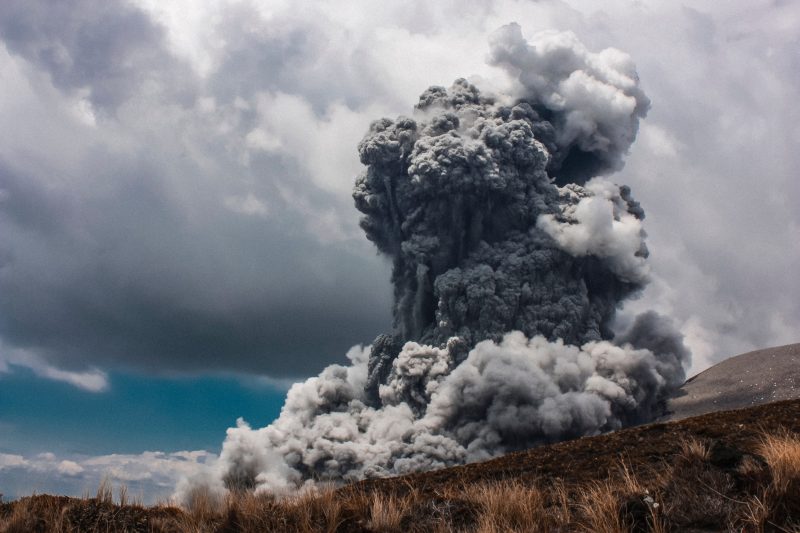GEAB Cafe No 8: A Panorama of challenges for the beginning of the academic year

A report of the GEAB Cafe #8, by our Junior Team
The crisis that we have been analysing from the beginning in these columns is systemic in the sense that it affects all components of the system; and global because it concerns the entire world. This is a concept that is certainly well anchored in people’s minds, but which may have seemed theoretical to a large part of the world population. The feeling that dominated our latest GEAB Cafe discussion 1], held on September 21, is that this is no longer true. This global systemic crisis is now directly affecting the daily lives of most of the world’s population, and this is only the beginning.
The decantation of the summer of 2021 (America’s retreat from Afghanistan, natural disasters, economic consequences of the lockdows of 2020…) draws a landscape of chaos, restructuring a new world order and affecting the entire planet.
On the strategic level
The first highlight of this year is, of course, the end of the war in Afghanistan and the victory of the Taliban. The “all for this?” attitude dominates public opinion in the countries of the alliance most deeply involved in this conflict 2]. And the populations are not hesitating to question their leaders’ actions. In the Netherlands, two ministers were forced to resign[3]. The absence of Dutch intelligence forces on the ground gives the impression that the country’s military forces have blindly followed (and thus suffered) the American command without being consulted or involved in the decision and the modus operandi of the withdrawal. This has led to resentment on the part of the population towards the decision-makers, leading to a break in the trust they had placed in their actions. In Germany, the issue is very present in the election campaign[4] for similar reasons and it is likely that it will not fade away immediately after the vote. If Olaf Scholz were to be appointed Chancellor, he would immediately be held accountable for his management of the withdrawal as Vice-Chancellor.
On strategic issues, a breakthrough came when the United States realised that it has the capacity to be self-sufficient regarding energy. So its attention and energy were irrevocably diverted from the Middle East to Asia. The illustration of this pivot has materialised in recent weeks in the sequence of withdrawal from Afghanistan and the creation of the AUKUS[5]. And if the escalation of violence in the Middle East has preoccupied many minds in recent decades, let them not expect to rest now. The method remains the same on the side of the American military establishment and its arms industry. It is likely that there is no real desire for war on either side of the Pacific, but there is an interest in a race of arms to see contracts pile up and budgets swell and thus tensions in the Indo-Pacific region. And this situation does not protect anyone from seeing various forms of conflict materialise, regardless of the parties’ will.
On the monetary front
On the monetary front, Western populations are also facing a return to reality. The OECD economies have been on a debt drip[6] since the onset of the global systemic crisis, lockdowns have added another layer by forcing governments to finance entire sectors at a standstill at almost 100%. And now, inflation is again showing its face[7], although many are trying to reassure all actors by calling it transitory[8][9], and as it is no longer possible to “hide” it in the financial system, it seems to be here to stay, the only question being: what level can it reach? Faced with this, the central banks seem incapable of envisaging an orderly and controlled rise in interest rates, so the chain reactions could prove to be numerous and serious. The US is experiencing liquidity shortages[10] in some sectors as the government’s debt ceiling is about to be reached, corporate debt is also reaching peaks[11] in several sectors, banks are no longer really profitable but continue to exist as an intermediary for monetary policy, which now consists of nothing more than spreading cash. In short, apart from adding fuel to the fire, i.e. repeating the QE experiment, few solutions seem possible. The problem is that the same causes produce the same effects, and this will not help the efficiency of the monetary system, which is entirely based on confidence. So the alternatives seem obvious, and they are crypto-currencies. The only ones over which nation-states have control (CBDCs) are still in the pipeline and are slow to come out. If this breakup were to happen before, it would be Bitcoin and its ilk that would take the cake.
There is, however, one state that has started its own digital currency, China[12]. And it seems to be ready to show the rest of the world its own concept of stability. The government’s attitude towards Evergrande, a company on the verge of bankruptcy[13], could be a message to the Western camp: for us, saving a company from bankruptcy without asking for compensation is not part of the stability and resilience of a system. We are capable of withstanding this shock, what about you? If not, you will not criticise a communist state for playing by the rules of the free market, right? While the Western camp has based an entire model on ruptures and other disruptions (particularly in the financial sphere where they are necessary to generate added value, but also in innovation, culture, etc.), it has ended up losing control by seeking ever deeper ruptures. The Chinese side, with its Confucian tradition, prefers stability. While the West was keeping an out-of-control system alive, China methodically and rapidly built a stable, efficient and resilient model. In doing so it has benefited greatly from the dollar system. Is it time for the dragon to breathe fire without the risk of getting burned?
On the economic and social level
On the economic and social level, it is also through inflation that the global systemic crisis penetrates our daily life. Until now, the only sector in Western economies that has not escaped inflation has been real estate. This rule is not expected to change, but the various shortages and the consequences of the currency turmoil will spread to other sectors, and this has already largely started with energy [14]. Since we are dealing here with vital needs (housing, heating) the social consequences are inevitable. And as unemployment and poverty rates have already increased in recent years[15], social tensions are already well visible in these countries. In Germany, in addition to the historical resentment of the population towards inflation, it is the poorest workers who will suffer the most, and there are many of them. As the country has based its entire economic reconstruction since reunification on an export model, it had no choice but to maintain an industry operating with relatively low-paid workers in order to be able to compete internationally. A situation that was also made possible by a euro that did not soar despite German exports being held back by the rest of the euro zone, which had much less international commercial success. The economy and the currency have come full circle.
Faced with major social tensions that are not likely to subside, many Western countries are already tempted by a form of authoritarianism[16]. Inflation will create winners and losers, and the challenge for governments will be to keep the gap between the two as small as possible to avoid an explosion of these tensions. If this fails, authoritarianism and repression will be the last resort. Another feeling that will be exacerbated in the future is that of misallocated money. Now that public debts have exploded again, the desire to return to balance will have to be addressed. A return to some form of austerity seems inevitable. In France, the coming of the elections means that no candidate dares to broach the subject, but whoever wins will probably have no other choice. A sequence that will contradict ecological transition projects that require a very large reallocation of funds from sectors and methods that are harmful to the environment to others that are beneficial. And, inevitably, there will be social breakage since jobs depend on these sectors and methods, and the only way to make it bearable is through significant support via public funds to make the transition. Once again, the financial/monetary and economic/social issues have come full circle.
Of course, there is a solution to the latter issue: ignore the ecological transition imperative a little longer. This is a solution that is in the hands of governments and that will be acceptable to public opinion, even if it is increasingly aware of the issue[17], if it is to preserve a standard of living that is no longer comfortable but simply decent. However, this respite is not without consequences, as the summer was marked by fires and floods of a rare magnitude all around the globe[18]. The consequences of climate change and environmental destruction are already here, and they call on us to make the systemic transition that we are analysing in this media. Shall we be able to face the dangers and seize the opportunities?
Not a GEAB subscriber yet? Subscribe here
_________________________________
[1] Monthly videoconference discussion forum for subscribers and members of the GEAB editorial team.
[2] Source : Daily Mail, 15/08/2021
[3] Source : France 24, 17/09/2021
[4] Source : Washington Post, 26/08/2021
[5] Source : White House, 15/09/2021
[8] Source : Reuters, 27/08/2021
[10] Source : Business Insider, 24/06/2021
[11] Source : The Economist, 25/09/2021
[12] Source : Coin Tribune, 17/09/2021
[13] Source : Capital, 28/09/2021
[14] Source : Financial Times, 17/09/2021
[15] Source : Eurostat, 05/07/2021
[16] Source : World Politics Review, 11/09/2020
[17] Source : UNDP, 27/01/2021
[18] Source : The Verge, 03/09/2021



Comentarios